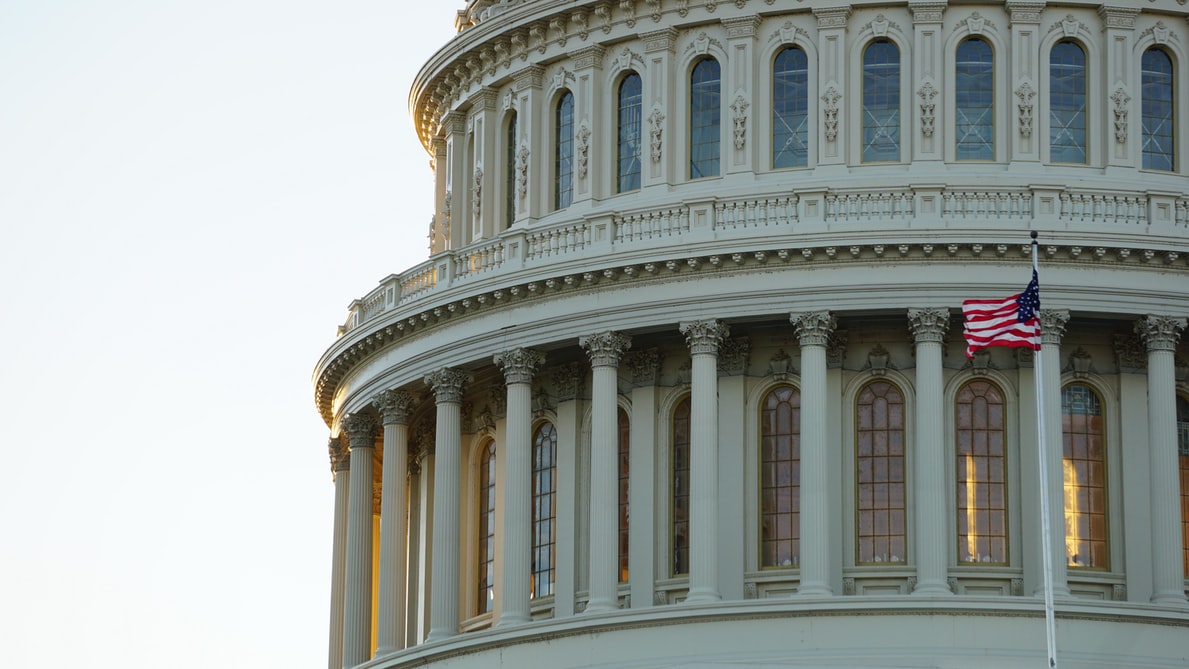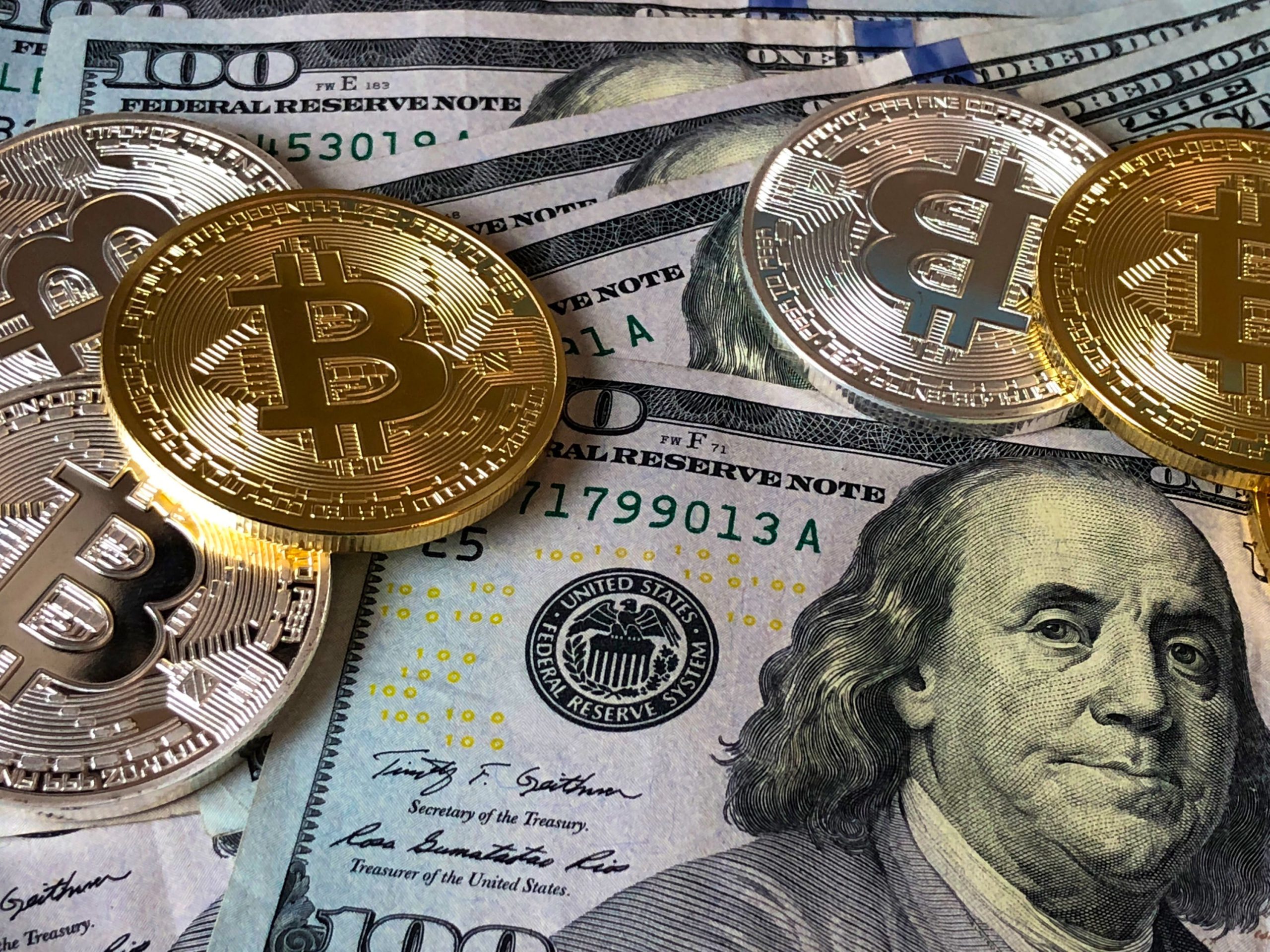The United States Senate Is Passing a Trillion-Dollar Infrastructure Bill That Contains Crypto Regulations; What Does It Mean for Investors?
Jack Choros
Content Marketing
H.R.3684. That’s the government bill we’re going to be talking about today at Netcoins. No, it’s not a bill being looked over by the government here in Canada, it’s American. But the consequences of the bill are far-reaching for anybody involved in the cryptocurrency industry including investors like you.
Fortunately, (or unfortunately depending on your perspective), the bill was passed on August 10 and the final vote in the Senate was 69-30.
The bill itself is something promised by the Joe Biden Administration during last year’s presidential race and intends to build America’s future. It’s a bill that encompasses much more than just cryptocurrency.
In this post, we are going to talk a little bit more about the crypto specifics within the bill, the hoopla surrounding amendments that came out and were ultimately denied, and how it might impact the crypto industry as a whole in the long run.
Hope you’re ready to learn a lot!

A Deeper Dive Into Bill H.R.3684
Keep this in mind. Bill H.R.3684 is all about putting $1 trillion into American infrastructure. It’s called the INVEST in America Act. The acronym INVEST stands for Investing in a New Vision for the Environment and Surface Transportation.
The bill aims to address climate change issues, update highways, mass transit systems and rails, repair bridges and rural communities and implement new safety requirements across all forms of transit along with many other goals.
Here’s the thing. Footing a $1 trillion bill (no pun intended) is no easy task. The documentation for the bill itself is thousands of pages long and contains a provision that estimates $28 billion in tax revenue can be generated to support the bill by taxing the crypto industry.
Bitcoin, Ethereum, and all other cryptocurrencies are built around the idea of being your own bank, so naturally, the average crypto investor doesn’t want to pay taxes or to be told how their crypto-related business (and not just their holdings) can also be taxed.
That’s the reality that many stakeholders in the industry are now facing. But there is a back story to all of this, and the fight might not be over yet.
The Original Reason Cryptocurrency Is Mentioned In The Bill
Bill H.R. 3684 has been stealing much of the crypto headlines throughout the month of August, but as a seasoned crypto enthusiast, you’re probably aware of the fact that governments all around the world have been talking about how to tax crypto or whether they should or not for many years. There will be many more years of discussion to come without a doubt.
The original thought behind taxing crypto businesses related only to exchanges. The IRS spent two years trying to push crypto exchanges to meet informational reporting requirements.
According to Kristin Smith, the Executive Director of the Blockchain Association, the exchanges don’t actually have a problem with paying taxes. But even in the midst of the 2017 boom, most of those businesses weren’t receiving the traditional 1099 tax forms that they would get in order to pay taxes.
For a long time, there was also a lack of understanding on behalf of governments about how cryptocurrency and blockchains work. And whether or not authorities would even be able to catch people that owed the government money. Now that we’re in 2021, those latter challenges are better understood by authorities.
With the original reasoning for the bill being taxing just crypto exchanges, the language relating to crypto that is written in the bill surprised most in the industry.

What Bill H.R. 3684 Actually Says
The language in the bill refers to crypto “brokers”. The problem with that is that the bill expands on the word broker and allows it to imply that crypto exchanges, miners, validators, and even developers should all pay taxes to help support the infrastructure bill. The problem with that is it’s not so easy to collect taxes from all of these constituents.
Think about the fact for example that many exchanges are decentralized and don’t live on a centralized server. Who do you tax in that situation?
How do you tax somebody that bought Ethereum tokens five years ago and now has enough to stake them and earn more Ethereum annually when they may never convert that Ethereum back into fiat?
Consider that new regulations are also being proposed here in Canada by the Ontario Securities Commission that big-name exchanges like Binance and Huobi don’t want to follow, meaning they will likely be pulling out of Ontario by the end of the year, and likely the rest of the country eventually. What does that have to do with taxes? Anybody who used these exchanges over the last several years may not have a record of their transactions. How is the Canadian government going to tax people?
The point is these questions exist regardless of country and regardless of the nature of the crypto business being mentioned in any legislation.
Attempts To Get The Bill Amended Came Close, But Failed
We’re not here to teach you everything you need to know about the U.S. Senate, but there are three key figures you should probably know about. For all intents and purposes, Ron Wyden, Pat Toomey, and Cynthia Lummis are seen as the political good guys when it comes to regulating crypto the right way. These representatives wanted to change the language surrounding the word broker in the bill to something more specific to exchanges.
That way the American government could raise tax revenue without crushing the entire industry. Their proposed amendment was shot down in the last couple of weeks, however. This doesn’t mean that the crypto industry is doomed as it still needs to go through the House of Representatives, which is on recess until next month.
Key influential lobbyists working for crypto exchanges like Coinbase and Kraken were doing the footwork trying to convince representatives to vote in favor of amendments that would keep most aspects of crypto safe from taxes. The CEO of Kraken even sent out an email to all of the exchange’s customers to let them know they should be pushing their local representatives to support the amendments.
Unfortunately, the amendments did not get added to the bill. All three members of the Senate mentioned in the paragraphs above deserve a lot of credit for their push and so do the crypto businesses and non-profits that educated the public on what’s happening. Still, the problem is, the more things change the more they stay the same.

The Bill Reflects An Old-School View On Cryptocurrency
Two other U.S. Senators, Mark Warner and Rob Portman, want tax laws to reflect the idea that only Proof-of-Work consensus algorithms should be exempt from taxes and nothing else. This essentially points to Bitcoin as the only asset that should be considered tax-exempt. That’s a good thing if you’re a long-term HODLer of the original crypto, but it stunts the growth of every other aspect of the industry.
The truth is that as much as many well-meaning politicians both in the United States and here in Canada want crypto to make progress while protecting consumers at the same time, it’s clear that many regulators still don’t understand how much their old-school views are impacting such an incredible opportunity to change the way we use money and decentralized applications in the future.
What Can Canadians Do About All This?
Canadians can’t technically do anything about an American infrastructure bill, but when the United States coughs Canada sneezes. What progressive investors should do is focus on a Canadian bill called Joint Canadian Securities Administrators/Investment Industry Regulatory Association of Canada Staff Notice 31-329 – Guidance for Crypto Asset Trading Platforms: Compliance with Regulatory Requirements. That’s the name of the document linked closer to the top of this post. It doesn’t speak for all of Canada as it is published by the Ontario Securities Commission, but it will give you insight into how Canada is handling regulating crypto-based businesses.
It doesn’t necessarily speak to taxes too much, it’s more so intended to address protecting Canadians and ensuring that crypto businesses in this country are conducting themselves aboveboard. The point is, crypto enthusiasts have a voice, and the vote on the bill in the United States was nearly overturned just because a few senators and a lot of people in crypto really care about the issue.
If Bitcoin, Ethereum, and all other cryptocurrencies are meant to be governed by communities of people rather than central authorities, crypto enthusiasts must make sure to voice what we do and don’t want written in tax laws related to crypto. Public servants in Canada have an incentive to respond to what we have to say.
Remember, as soon as they get elected, a politician’s job is to get re-elected. That means even if things are looking bleak south of the border, Canadian crypto lovers can still shine bright and speak up. Get informed and tell your local representatives how you want the future of crypto to look like.
Sign Up With Netcoins And Be a Part of the Future
You can bet your last Satoshi that regardless of what the regulatory environment of crypto in Canada looks like going forward, Netcoins plans to serve you with the opportunity to buy and sell crypto at the best possible fees.
Sign up for a free Netcoins account today and remember to stay aware of what’s going on as this industry continues to evolve. If you hold crypto, you have a vested interest in what happens next, and remember, no matter how large or small your crypto holdings are, your voice on issues related to crypto regulation matters!
Written by: Jack Choros
Writer, content marketing at Netcoins.